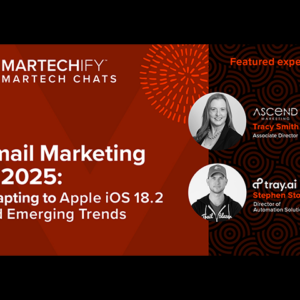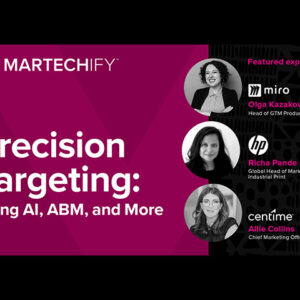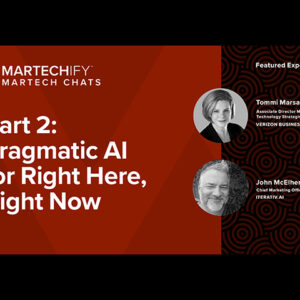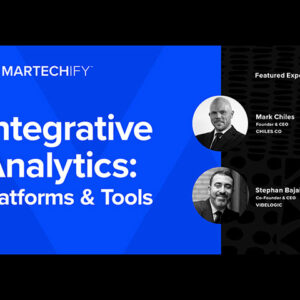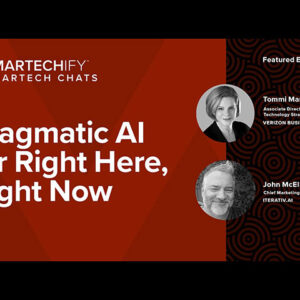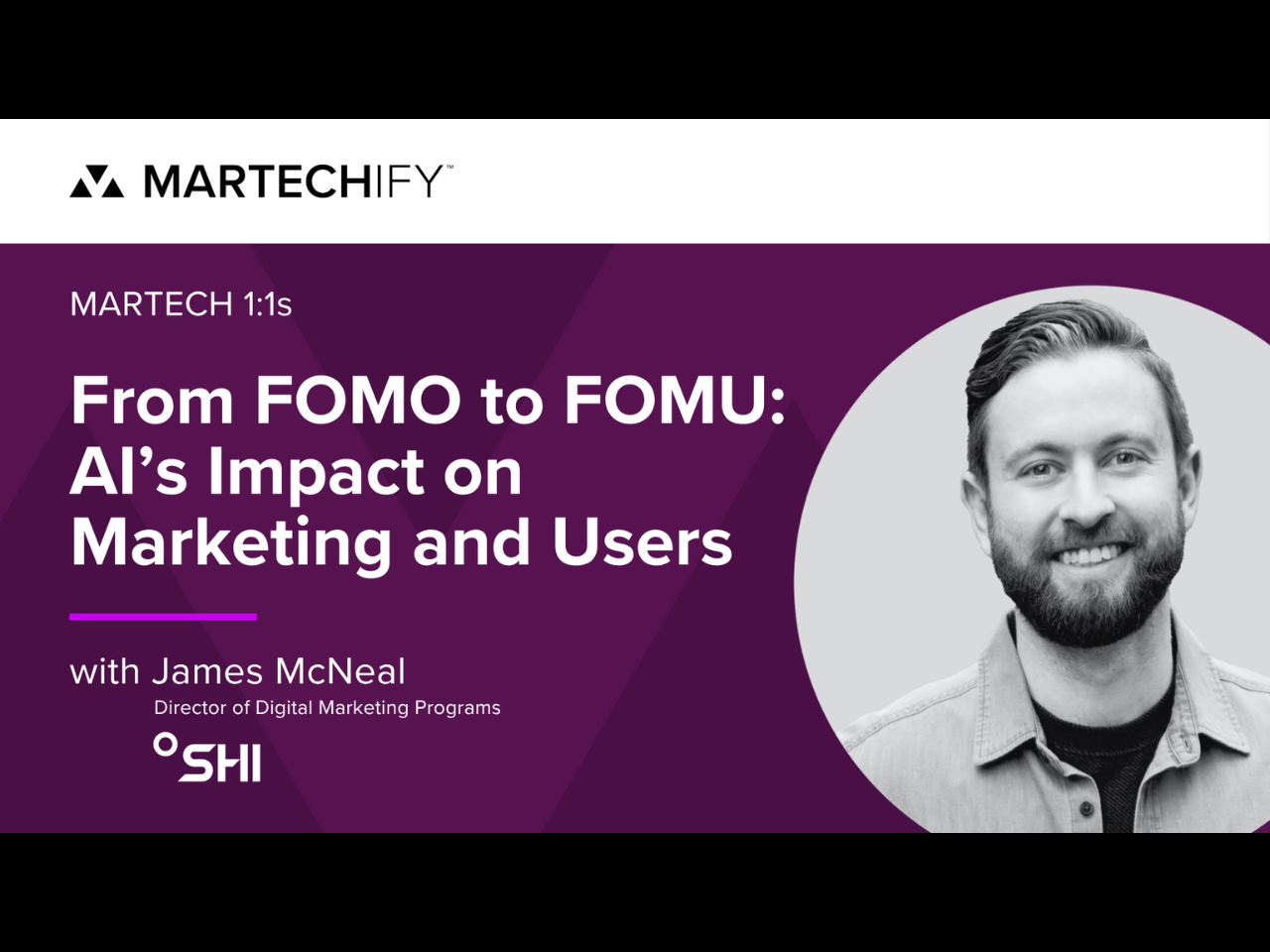Martech lessons from Pitt Business Impact Conference: Human-Centric and Responsible Use of AI
- Ekaterina Konovalova, Martechify Director
- AI and Automation, Content Strategy and Marketing, Customer Experience (CX), Digital Transformation, Managing Org Transformation, Managing Your Career, Media and Adtech Optimization, Strategy and Trends
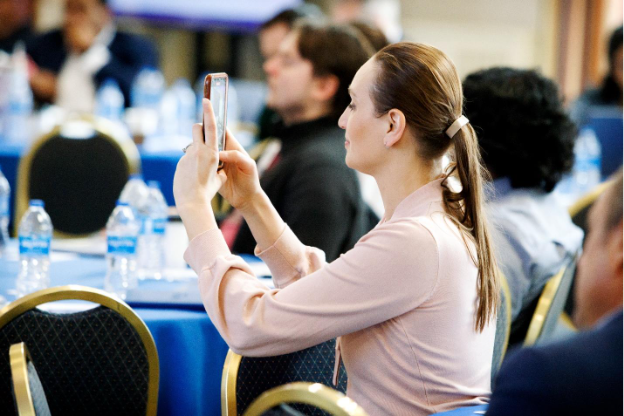
Martechify Director, Ekaterina Konovalova, recently attended the Human-Centric and Responsible Use of AI conference, hosted by the University of Pittsburgh Business School. It was a full-day event, packed with recent findings from leading researchers in marketing and AI from Pitt Business and the Wharton School of the University of Pennsylvania, as well as business executives from IBM, Netflix, and Boston Consulting Group, among others.
The experts touched on the risks and potential of AI, discussed implications for future jobs and ethical governance.
The experts touched on the risks and potential of AI, discussed implications for future jobs and ethical governance.
AI and job market
It’s no secret that many professions have been profoundly impacted by AI. Fields such as copywriting, graphic design, law, computer programming, and data analysis have seen dramatic gains in efficiency and unprecedented speed—advancements that have, in some cases, led to layoffs.
Recent college graduates seemed to get hit the most, according to the latest study by Dr. Stefano Puntoni, the Sebastian S. Kresge Professor of Marketing at The Wharton School. Dr. Puntoni is one of the leading global experts and researchers on new technologies in marketing and how AI impacts human behavior and Artificial Intelligence.
Recent college graduates seemed to get hit the most, according to the latest study by Dr. Stefano Puntoni, the Sebastian S. Kresge Professor of Marketing at The Wharton School. Dr. Puntoni is one of the leading global experts and researchers on new technologies in marketing and how AI impacts human behavior and Artificial Intelligence.
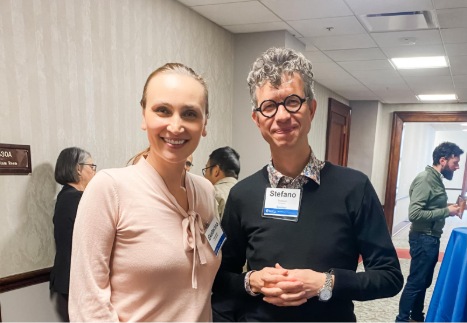
“Despite widespread talent shortages, most companies are avoiding hiring recent graduates. 98% of leaders say their organization is struggling to find the talent, yet 89% say they avoid hiring recent graduates.” In addition, “Leaders report that instead of hiring a recent graduate, they would rather hire a freelancer (45%), recruit a retired former employee (45%), have a robot/AI do their job (37%), or leave the position unfilled (30%).”
Fortunately, a new type of executive role has begun to emerge, introducing Chief AI Officers to companies both large and small. This suggests that new graduates and aspiring marketers can consider pivoting to AI and martech as a viable career path. Focusing on marketing technologies and tools, understanding marketing automation programs and customer journeys, and studying AI and data security are promising ways to stay competitive in today’s job market.
Cheif AI Officers (CAIO) are now in 21% of companies:
— Large companies (revenue $2B+): 16%
— Mid-sized companies (revenue $250M to $2B): 21%
— Small companies (revenue $50M to $250M): 23%
This emergence of martech and AI-focused roles brings a sense of optimism, echoed by industry leaders who view AI not as a threat, but as a tool for empowerment. As Justin Weisz, Senior Research Scientist and Strategy Lead at IBM’s Human-Centered AI, put it “We want to give people superpowers. We want to have people working in a job feel like they’re able to do that job better, higher quality, or faster because they’re working with AI… In my own research, we focus very heavily on looking at these situations where you have someone who’s doing a work task by themselves, now you have someone who’s doing a work task with AI. Do we see an improvement in their work process? Do we see an improvement in their outcomes?”
Fortunately, a new type of executive role has begun to emerge, introducing Chief AI Officers to companies both large and small. This suggests that new graduates and aspiring marketers can consider pivoting to AI and martech as a viable career path. Focusing on marketing technologies and tools, understanding marketing automation programs and customer journeys, and studying AI and data security are promising ways to stay competitive in today’s job market.
Cheif AI Officers (CAIO) are now in 21% of companies:
— Large companies (revenue $2B+): 16%
— Mid-sized companies (revenue $250M to $2B): 21%
— Small companies (revenue $50M to $250M): 23%
This emergence of martech and AI-focused roles brings a sense of optimism, echoed by industry leaders who view AI not as a threat, but as a tool for empowerment. As Justin Weisz, Senior Research Scientist and Strategy Lead at IBM’s Human-Centered AI, put it “We want to give people superpowers. We want to have people working in a job feel like they’re able to do that job better, higher quality, or faster because they’re working with AI… In my own research, we focus very heavily on looking at these situations where you have someone who’s doing a work task by themselves, now you have someone who’s doing a work task with AI. Do we see an improvement in their work process? Do we see an improvement in their outcomes?”
AI chatbot podcasts, AI meetings with clients and self-awareness
One case study that made a big splash in the business and marketing world is Boston Consulting Group’s GENE, a proprietary chatbot that demonstrates the company’s AI capabilities. Bill Moore, the Senior Manager of Digital Experience Group at BCG Design Studio, shared the story behind “Imagine This,” a podcast co-hosted by humans and GENE.
It all started when Bill organized the Creative Technology Club at BCG. He began working on design prompts for large language models (LLMs) and, in collaboration with the engineering team, designed the BCG Generator—an application that created personalized ads speaking directly to customers, using their names along with custom voice, music, and video elements.
Later, the media team at BCG approached Bill to ask whether it was possible to create an AI co-host for a podcast. Initially, the AI’s response time was slow—taking up to a minute to reply—and it was limited to just 15 minutes of conversation. Fortunately, technology advanced rapidly. Today, GENE engages in witty conversations with human co-hosts and even appears at live events with BCG clients and other audiences, reflecting on the future of AI and broader thought leadership topics.
As technology and LLMs advance toward convincingly mimicking human speech, BCG has made a deliberate choice to keep GENE distinctly robotic. “Self-awareness, AI nature, and also be able to explain to people who are listening to GENE that GENE is not human. It’s something that we tend to build into all of our AI systems,” said Bill Moore. “Just starting from the baseline of all our AI agents… should never claim to be a human. They should never fool people in any way that they’re human.”
It all started when Bill organized the Creative Technology Club at BCG. He began working on design prompts for large language models (LLMs) and, in collaboration with the engineering team, designed the BCG Generator—an application that created personalized ads speaking directly to customers, using their names along with custom voice, music, and video elements.
Later, the media team at BCG approached Bill to ask whether it was possible to create an AI co-host for a podcast. Initially, the AI’s response time was slow—taking up to a minute to reply—and it was limited to just 15 minutes of conversation. Fortunately, technology advanced rapidly. Today, GENE engages in witty conversations with human co-hosts and even appears at live events with BCG clients and other audiences, reflecting on the future of AI and broader thought leadership topics.
As technology and LLMs advance toward convincingly mimicking human speech, BCG has made a deliberate choice to keep GENE distinctly robotic. “Self-awareness, AI nature, and also be able to explain to people who are listening to GENE that GENE is not human. It’s something that we tend to build into all of our AI systems,” said Bill Moore. “Just starting from the baseline of all our AI agents… should never claim to be a human. They should never fool people in any way that they’re human.”
AI safety, responsibility and ethics
There were many discussions at the conference about the ethical implications of AI—even the possibility of a dystopian future. For example, Dr. Joseph Yun, Director of Artificial Intelligence Enablement at the University of Pittsburgh, used a term, “P-dune,” which stands for percentage of probability of doom.
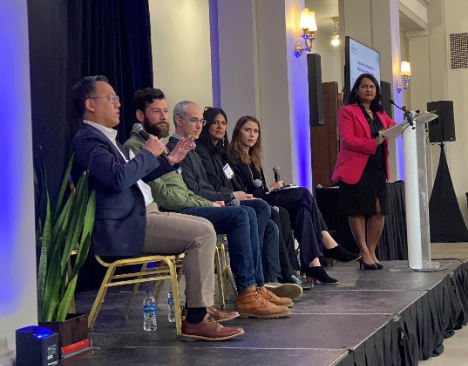
Fortunately, it was reassuring to hear that some of the tech giants are leading the way with an emphasis on the safety, transparency, and trustworthiness of their AI models. For example, IBM has invested heavily in developing tools and practices that support responsible AI deployment—most notably through its AI Governance Toolkit and Watsonx.governance platform.
Justin Weisz shared more details about IBM’s vision “AI technology should augment and enhance human performance. A lot of what our research does is we look at human-AI teams and collaborations together and we are really trying to understand how to help people do a better job on the work tests of doing what they need to do augmented by AI.” It gives us hope that AI giants are putting safeguards and safety checks in place to prevent the kind of doom and gloom so vividly depicted in the 2004 film I, Robot and other works of science fiction.
Justin Weisz shared more details about IBM’s vision “AI technology should augment and enhance human performance. A lot of what our research does is we look at human-AI teams and collaborations together and we are really trying to understand how to help people do a better job on the work tests of doing what they need to do augmented by AI.” It gives us hope that AI giants are putting safeguards and safety checks in place to prevent the kind of doom and gloom so vividly depicted in the 2004 film I, Robot and other works of science fiction.
Final thoughts
The Human-Centric and Responsible Use of AI conference served as both a wake-up call and a source of inspiration for marketers navigating this transformative era. From ethical frameworks to real-world applications like BCG’s GENE, it’s clear that AI is reshaping not only how we work but how we define value, creativity, and collaboration. As marketing, technology, and human insight converge, one message resonated strongly: the future of AI is not just about automation—it’s about augmentation. For marketers and graduates alike, embracing AI fluency is no longer optional—it’s the key to staying relevant, resilient, and impactful in a rapidly evolving digital landscape.


